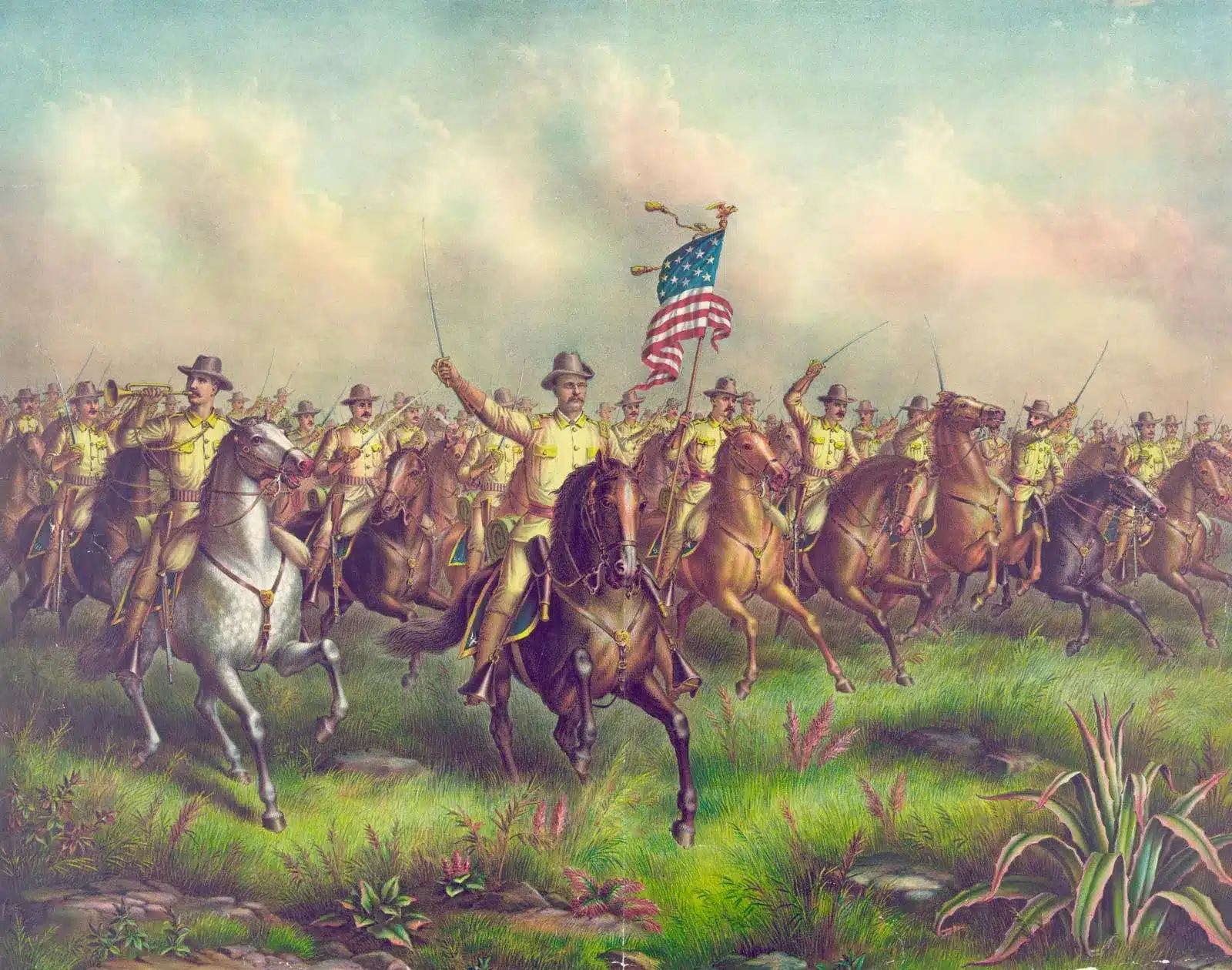War with Spain Changed America for the Worse (And We Knew It Would)
by | Apr 17, 2023

In his 1899 essay “The Conquest of the United States by Spain,” America’s foremost classical liberal William G. Sumner put forth a critique of the Spanish-American War that, in retrospect, was more horrifyingly accurate than he could have imagined.
Reflecting on the defeat of Spain in Cuba and elsewhere by the United States, it is worth quoting at some length:
“We have beaten Spain in a military conflict, but we are submitting to be conquered by her on the field of ideas and policies…We have self-government…if you mean by it acquiescence in what a little group of people at the head of the government agree to do. The war with Spain was precipitated upon us headlong, without reflection or deliberation and without any due formulation of public opinion. Whenever a voice was raised in behalf of deliberation and the recognized maxims of statesmanship, it was howled down in a storm of vituperation and cant. Everything was done to make us throw away sobriety of thought and calmness of judgment and to inflate all expressions with sensational epithets and turgid phrases. It cannot be denied that everything in regard to the war has been treated in an exalted strain of sentiment and rhetoric very unfavorable to the to the truth.”
Unfortunately, it is entirely unnecessary to explain how prescient these insights have proven.
In the words of that later monster—crowned great president courtesy of statist historians—Woodrow Wilson, “No war ever transformed us quite as the war with Spain transformed us.”
Indeed, the so-called Progressive Era is instructive for its wholesale abandonment of the old American traditions in favor of those institutions of the rival European nation-states, whose central banks, welfare states, standing armies, and propaganda arms made managing both population and permanent wars possible.
As a lesson in history, the circumstances surrounding the American attack on Spain in Cuba, the Caribbean, Pacific, and East Asia were a microcosm of the pattern Washington’s wars of aggression have tended to follow. Seizing on a manufactured incident, and with the help of a pliant press, war was made on the most specious of basis. President William McKinley gave Congress as reasons for the war, in order: humanity, the people of Cuba, American business interests, and that what happened in Cuba endangered the United States.
Apart from the quaint anachronism of an American chief executive going to the legislature for a declaration of war—something that has not happened since the imperial presidency was well and truly inaugurated under that other monster-made-great-man, FDR—the introductory textbook of U.S. foreign relations in many graduate seminars unapologetically (though helpfully) offers this additional explanation for the war: “A belligerent foreign policy offered a release for pent-up aggressions and diversion from domestic difficulties.”1
Indeed, in the words of that often misunderstood imperialist par excellence, Senator Henry Cabot Lodge, a quick war with Spain would help to “Knock on the head the matters which have embarrassed us at home.”2 Fearing the transformative impact of industrial capitalism, urbanization, depression, immigration, and divisions of class and race, a congressman from Illinois averred that “War is healthy to a nation.”3
Understanding that the expansion of state power was necessary to wage the increasingly long-distance and capital intensive wars of imperial conquest, of which the war against Spain was only the first, in his essay Sumner argued for a return to “economical government,” limited government, one which offered “little field for ambition,” towards a state that could not steal away sons, brothers, and husbands to “shed blood for [the] glory” of the state.
While it may have been as unpopular a position as it is now, it is no less true for that, and the platform of the American Anti-Imperialist League, of which Sumner was himself a part, rings just as true today:
“We deny that the obligation of all citizens to support their government in times of grave national peril applies to the present situation. If an administration may with impunity ignore the issues upon which it was chosen, deliberately create a condition of war anywhere on the face of the globe, debauch the civil service for spoils to promote the adventure, organize a truth-suppressing censorship, and demand of all citizens a suspension of judgement and their unanimous support while it chooses to continue the fighting, representative government itself is imperiled.”
While comfily ensconced neocons, liberal internationalists, and their pliant media shills will say otherwise, the only defensible foreign policy for a republican United States remains that which was enunciated by the Whiggish John Quincy Adams some 200 years ago. America, he said, “is the well-wisher to the freedom and independence of all. She is the champion and vindicator only of her own.”
America’s interventionist foreign policy during the long twentieth century, 1898-2022, was nothing but a series of moves further and further afield of this laudable libertarian goal. Destruction abroad and the death of our liberty at home have been the price.


0 Comments:
Post a Comment
Subscribe to Post Comments [Atom]
<< Home